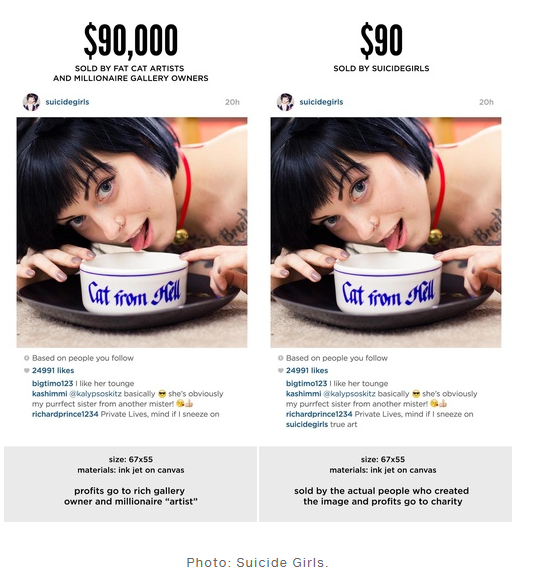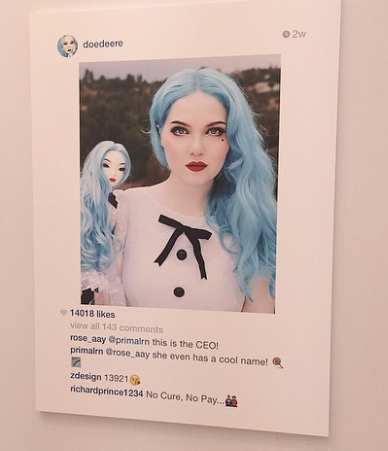Reactions to the Richard Prince Instagram story continue to filter in, and highlight the perpetual confusion between what is publicly available and what is in the public domain. They are not the same thing, with important legal consequences.
Richard Prince, Social Media and the Public Domain: Reports of Copyright’s Demise are Premature
Topics: Richard Prince, Missy, Copyright Act, Prince v. Cariou, Canal Zone, Patrick Cariou, Suicide Girls, vulture.com, Yes Rasta, 17 U.S.C. § 107, Jerry Saltz, Instagram, Copyright, transformativeness, Fair Use, ArtNet, New York Magazine, § 107
Fair Use Fool me Twice, Shame on Me—Richard Prince Goes Trolling on Instagram But May Have a More Pedestrian Problem
Few art law cases have received as much attention as that of Richard Prince and his dispute with Patrick Cariou over the latter’s Yes, Rasta photographs that Prince altered, defaced, and otherwise rearranged for his Canal Zone series. Prince has now garnered renewed attention for his appropriation of Instagram images in a set of works he has been selling at a Gagosian Gallery show called “New Portraits" (and in various other venues over the last few months). He escaped liability for infringement of Cariou’s pictures (though the case settled after remand; several infringement claims were still in play when the parties settled). Can he do so again? If this recent effort is not infringement, it certainly begs the question of whether the fair use exception has swallowed the rule. Lastly, Instagram itself may have prohibited the entire exercise in its terms of use, a possible avenue to short-circuit the entire copyright exercise.
Topics: Richard Prince, Copyright Act, DoeDeere, 2LiveCrew, Prince v. Cariou, Roy Orbison, Canal Zone, Patrick Cariou, Internet, Yes Rasta, 17 U.S.C. § 107, Instagram, Copyright, Gagosian Gallery, transformativeness, Fair Use, § 107




